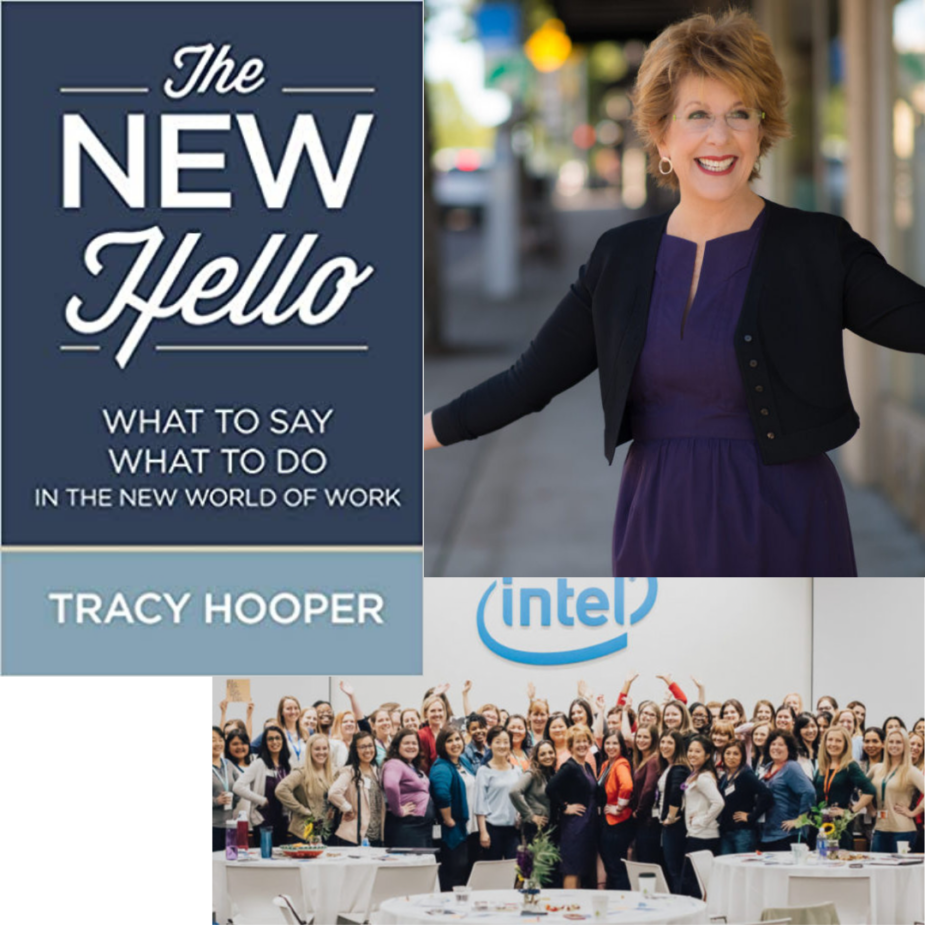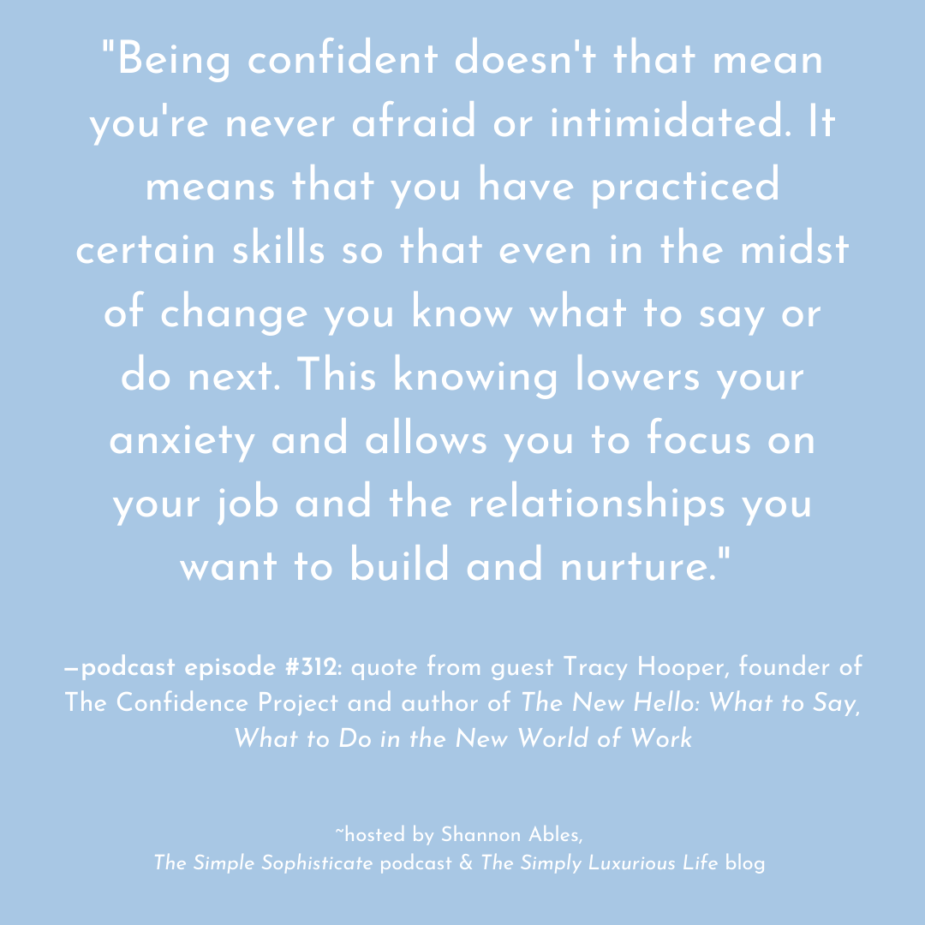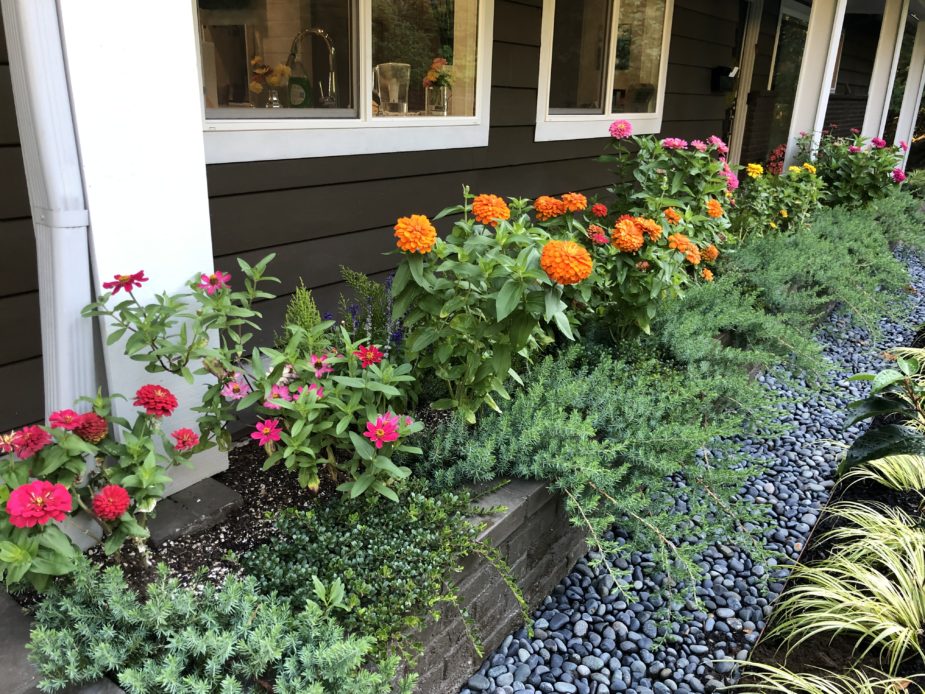Sun, 19 September 2021
 The workplace has shifted in a short amount of time, largely due to the pandemic, but also prompted by many other social and environmental awakenings. Communication, civil communication, remains at the epicenter of a civil society; however, currently, a significant learning curve has taken place, and we need to keep up in order to strengthen connections, build trust and foster workspaces of inclusion. My guest on today's podcast, Tracy Hooper, the founder of The Confidence Project, released a new book The New Hello: What to Say, What to Do, in the New World of Work this past year to share with us all the how and the why to practicing and learning the skills of clear communication paired with acute awareness of others to create a workplace of mutual, positive benefit and exchange. Having known Ms. Hooper for ten years (she was a guest on the show during its first season), we had a wonderful video chat for today's episode (audio only). Listeners will learn specific examples of skills to utilize not only in their work life, but their personal life as well to strengthen relationships and honor our own boundaries and voice. Items of Discussion in today's episode:
I highly recommend The New Hello for not only our current times, but all times, as Tracy shares years of research and experience with a vast variety of workers and individuals, teaching the importance of self-awareness (how we speak - the words we use and what is conveyed, whether we intentional or by default; as well as our body language) and awareness of our surroundings and those we work with ensuring all parties feel comfortable, welcome and heard.
 Links to explore:
 Confidence: How to Gain It & Why It's Invaluable, episode #5
 Learn more about The New Hello (available in paperback and audio) ~I greatly appreciate what Tracy shares in this IG video (below) about standards and respecting the ones we have for ourselves whether in business or in our personal lives
Petit Plaisir As well, Tracy shares this episode's Petit Plaisir, a priceless example, something each of us can incorporate into our daily lives, to deepen our contentment, calm our minds and settle our being. Shared below, Tracy's zinnias surround her outdoor space at home to sit, relax and slow down during the summer months.

 . View more Petit Plaisirs here. ~The Simple Sophisticate, episode #312~Subscribe to The Simple Sophisticate: iTunes | Stitcher | iHeartRadio | YouTube | Spotify | Amazon Music |
Sun, 5 September 2021
"The world is already broken. And what's true of the state of civilization is equally true of your life: it was always already the case that you would never experience a life of perfect accomplishment or security. And your four thousand weeks have always been running out. It's a revelation, though: when you begin to internalize all this even just a bit, the result is not despair, but an energizing surge of motivation . . . You realize that you never really needed the feeling of complete security you'd previously felt so desperate to attain. This is liberation." —Oliver Burkeman, author of Four Thousand Weeks: Time management for mortals Admittedly, the length of a human life is short when we take the long view of civilization, so it is understandable for us to make the most of our time. However, in so doing, we often go about 'making the most of it' in unhelpful, counter-intuitive ways. Oliver Burkeman wrote a long-running and award-winning weekly column for The Guardian up until last year. He is also the author of The Antidote: Happiness for People Who Can't Stand Positive Thinking, and so after reading his final column for The Guardian, and the synopsis for his first book, I had an idea of his frank, yet considered and sincere approach to what he shares with his readers. Four Thousand Weeks is not your typical time management book. Thank goodness. It is a book to open our eyes to the reality of our mortality, no matter how much we may profess we accept that we will die, we demonstrate through our actions, how we live, we may not have fully absorb this life truth. But don't worry, Burkeman shares in his introduction, his objective is to write a book that helps each of us "redress the balance [of our finite time on this planet and engage productively with fellow citizens, current events and the fate of the environment]—to see if we can't discover, or recover, some ways of thinking about time that do justice to our real situation: to the outrageous brevity and shimmering possibilities of our four thousand weeks." I have pulled ten tips he shares about how to live more deeply, and thus more contentedly in our everydays and thus our entire life; however, there is much more in the book and I highly recommend reading it in its entirety. Let's take a look at the list. Visit the full Show Notes on The Simply Luxurious Life — thesimplyluxuriouslife.com/podcast311 |
The Simple Sophisticate - Intelligent Living Paired with Signature Style

Categories
lifestylemoney
fashion
general
food
relationships
beauty
holidays
style
decor
etiquette
technology
dating
clothing
news
happiness
health
finances
self-help
feminism
french living
communication
inspiration
self-improvement
cooking
French-inspired
podcast
travel
entertaining
Archives
AprilMarch
February
January
December
November
October
September
August
July
June
May
April
March
February
January
December
November
October
September
August
July
June
May
April
March
February
January
December
November
October
September
August
June
May
April
March
February
January
December
November
October
September
August
July
June
May
April
March
February
January
December
November
October
September
August
July
June
May
March
February
January
December
November
October
September
August
July
June
May
April
March
February
January
December
November
October
September
August
July
June
May
April
March
February
January
December
November
October
September
August
July
June
May
April
March
February
January
December
November
October
September
August
July
June
May
April
March
February
January
December
November
October
September
August
| S | M | T | W | T | F | S |
|---|---|---|---|---|---|---|
| 1 | 2 | 3 | 4 | |||
| 5 | 6 | 7 | 8 | 9 | 10 | 11 |
| 12 | 13 | 14 | 15 | 16 | 17 | 18 |
| 19 | 20 | 21 | 22 | 23 | 24 | 25 |
| 26 | 27 | 28 | 29 | 30 | ||
Syndication

